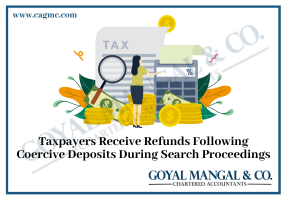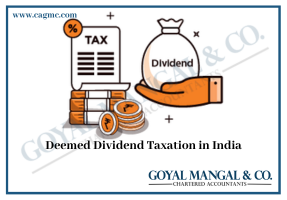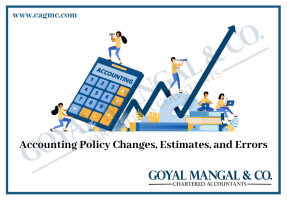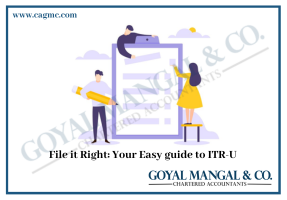
Starting on the journey to become a registered investment advisor opens up a world of financial opportunities. It’s not just about numbers; it’s about guiding individuals and businesses on their financial paths. In this blog, we’ll unravel the direct steps to help you become a registered investment advisor. From educational qualifications to specialized programs, we’ll break down the process into simple insights, leading you to navigate this exciting realm with confidence. Get ready to explore the path that leads to a fulfilling career in financial guidance!
Meaning of Investment Advisor
An investment advisor is a financial expert dedicated to assisting individuals and organizations in making wise financial choices. Their primary role involves offering guidance on how to invest and handle finances to achieve particular goals, like saving for retirement or purchasing a home. These advisors carefully assess the financial situation, risk preferences, and future requirements of individuals or entities to develop a personalized investment plan.
To provide well-informed recommendations, they stay informed about market trends, economic changes, and available investment opportunities. Overall, investment advisors strive to optimize returns and reduce risks, collaborating closely with clients to support them in reaching their financial goals.
Qualifications to be an investment advisor
- Individuals must have professional qualifications, a graduate diploma, or a post-graduate diploma (minimum 2 years) in fields such as finance, business management, commerce, accounting, capital markets, economics, insurance, banking, or actuarial science.
- This degree must be from a university or institution recognized by the Central Government, any State Government, a recognized foreign university or institution or an association.
- Additionally, professionals can achieve a qualification in the securities market (Investment Advisory) by completing a post-graduate program at NISM lasting for at least one year. Another avenue is obtaining a CFA Charter from the CFA Institute, which is a recognized professional qualification in the field of investment.
- These educational and professional qualifications ensure that individuals are well-equipped to provide sound investment advice.
Experience required being an investment advisor
The individual investment consultant or principal director of a non-individual must have at least 5 years of experience in activities related to consulting on fund, asset, portfolio management or financial products and securities. Persons solely involved in investment consulting must have at least 2 years of experience in activities related to financial product consulting or asset or investment portfolio management.
Certification to be an investment advisor
The individual investment adviser or the principal officer of the non-individual investment adviser or person associated with the investment advice must have a certificate in funds or assets or investment portfolios or financial planning services, or investment advisory under code from
- NISM or
- Any company or any other organization including the Indian Financial Planning Standards Board or any recognized stock exchange in India if the securities that is recognized by NISM.
You must obtain a new NISM certification before the validity of the current certification expires. This is to ensure that certification requirements are met. New NISM certification cannot be achieved through the CPE program.
Infrastructure, Application & Fees structure
You must have appropriate infrastructure including research software to carry out investment advisory services, office space, office equipment, communication facilities, furniture, fixtures, and research capacity. After ensuring that you meet the above criteria, you can proceed to apply for investment consultation from SEBI. However, before applying, it is necessary to obtain in-principal approval from BASL.
Agreement between client and RIA
Agreements between clients and RIAs are crucial in clearly understanding the relationship between the two parties. These outline the terms and conditions of the services to be provided by the RIA, including the scope of services, fees, and the rights and responsibilities of both parties.
The agreements may also cover the RIA’s investment philosophy, the client’s investment goals and risk tolerance, and the frequency of communication and reporting. It also includes provisions for terminating the agreement and resolving disputes between the parties.
Documents for registering as an investment advisor
These are the following documents required:
- Proof of Identity
- Proof of Address
- Proof of Qualifications (Diploma Certificate, NISM Examination Certificate)
- CIBIL™ Score
- Experience Certificate in case of Graduates (MF ARN Card, Insurance agencies, etc.
- Income tax returns for the last 3 years.
- Net worth certificates from a licensed accountant (minimum net worth required is Rs 5 lakh for individuals and Rs 50 lakh for individuals).
- Other declarations
Registration as an Investment advisor
Below are the steps to become a SEBI registered investment advisor license:
- Meet Eligibility Criteria: You must have relevant qualifications and work experience in relevant fields.
- Pass the NISM Certification Exam: The NISM-Series-X-B Investment Advisor Certification Exam: (Level 1) is the steppingstone to becoming an investment advisor.
- SEBI Application: SEBI Registration through Form A with required documents including identification, qualifications, experience, CIBIL score, net worth certificate, income tax return and registration fee.
- Pay registration fee: You have to pay Rs 5,000 registration fee.
- Wait for SEBI approval: SEBI will review the application and may request further information if necessary.
- Registration: Once SEBI approves your application, you will receive a registration certificate and can start providing consulting services.
- Regulatory Compliance: You must comply with SEBI regulations and adhere to ethical standards when providing investment advice.

SEBI regulations for a Registered Investment Advisor (RIA)
Following is some of the regulations that an RIA should comply with.
- Registration: RIAs must be registered with SEBI and meet minimum qualifications and experience requirements. They must also pass a certification examination.
- Fiduciary duty: RIAs must act in their client’s best interests and provide unbiased advice.
- Disclosure: RIAs should disclose all information about their investment products and services, including charges.
- Record-keeping: RIAs must maintain detailed records of all client transactions and interactions.
- Compliance: RIAs must comply with all SEBI regulations, including advertising and marketing, conflicts of interest, and client confidentiality
Who needs to register as investment advisor?
The SEBI (Investment Advisers) Regulations, 2013 in India governs the registration of Investment Advisors (IAs) and is overseen by SEBI. The regulations provide a definition for an investment advisor as an individual who offers guidance on securities investment or conducts research analysis.
Every person or group that meets the criteria of an investment advisor must undergo the process of registering with SEBI. This encompasses various entities such as individuals, partnership firms, limited liability partnerships (LLPs), companies, and any other establishment that offers investment advisory services in exchange for compensation. SEBI requires that all personnel and representatives from investment advisory firms who engage with clients and offer recommendations must also have their registration with SEBI.
Nevertheless, individuals involved in providing secondary guidance, such as a banker, certified accountant, or insurance agent, are exempt from the obligation of becoming a registered investment advisor. However, if an individual desires to offer investment guidance as their main service, they have the option to enrol with SEBI as an IA.
Benefits of getting SEBI registered investment advisor
Getting enrolled as an investment advisor with SEBI can offer a multitude of advantages.
- Being enrolled with SEBI enhances your reliability as an investment advisor, indicating that you have fulfilled the essential criteria and mandates established by the regulatory entity.
- We need to improve sustainability in order to protect our environment for future generations.
- It is necessary to adhere to stringent directives and abide by SEBI regulations, which safeguard investors against any unethical actions.
- Obtaining SEBI registration enables you to provide a range of services including portfolio management and financial planning, which can lure a larger clientele and contribute to the growth of your enterprise.
- It is important for you to be knowledgeable about the most current developments in the industry as well as any alterations in regulations.
- SEBI offers a mechanism for resolving disputes that facilitates investors in resolving conflicts that may arise with their advisors.
Sections in SEBI Registration Application form
The segments within the SEBI Registration Application Form:
- Section1 – General Information: In this portion, you will find the designation, official address, contact information of the authorized individual, and additional particulars. You will also need to provide information about your current and past involvement in personal finance and investment.
- Section 2 – Details of the applicant: You are required to submit the following copies. Self-certified copy: Copies of identity proof, address proof, and supporting documents related to qualifications are required to be self-certified. The certificates for the NISM investment adviser XA and NISM investment adviser XB exams. Income tax return for the past 3 years. A duplicate of a net worth certificate issued by a certified accountant.
- Section 3 – Information regarding Investment Advisory Services (Business Plan): This section holds utmost importance, and you must submit a well-prepared business plan, risk policy management system, and any other relevant information.
- Section 4 – Infrastructure details: Information regarding the elements and features that constitute a system’s physical and organizational framework. You must individually upload a comprehensive catalogue of your infrastructure, including all necessary evidence or documentation for each item. You are also required to submit a declaration pertaining to the infrastructure.
- Section 5 – Services for implementing or carrying out tasks or plans: Applicants who apply independently need to submit a statement confirming their commitment to refrain from engaging in any distribution and execution services once they receive the registration as an investment adviser from SEBI.
- Section 6 – Additional inquiries, statements, or facts: Numerous declarations are necessary during the registration process for an investment advisor. In this part, you are expected to submit all the essential details and statements.
- Section 7 – Costs and details: Once you have completed Form A on the internet, it will be delivered to your email address. You must enclose the required documents and information when sending it to the SEBI office
Takeaway
In conclusion, becoming a registered investment advisor is a rewarding journey that involves obtaining essential qualifications. From securing a professional degree in finance or related fields to exploring specialized programs like NISM or earning a CFA Charter, the route is diverse. By meeting these educational criteria and ensuring qualifications from recognized institutions, individuals have the way to becoming trusted advisors in the world of finance. This process not only enhances personal expertise but also opens doors to assist others in navigating their financial goals with confidence and integrity.







